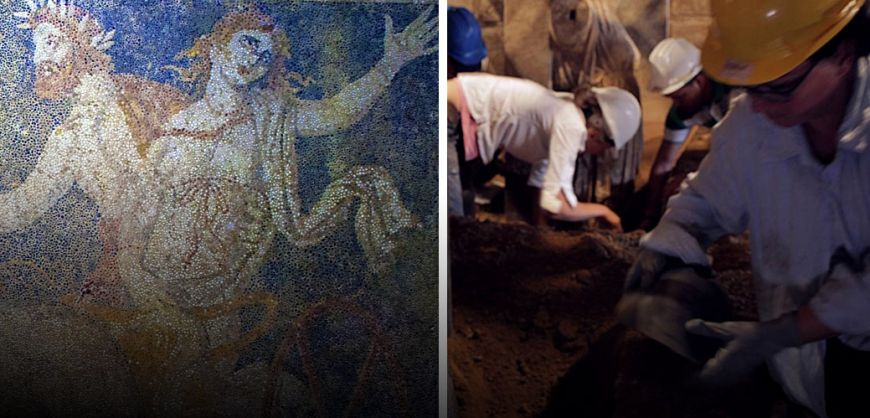A 20-cm-thick layer of clean sand from Strymonas river was removed yesterday from the third chamber of the Kasta Tomb in Amphipolis as the excavation proceeds, bringing the world closer to the solution of the mystery regarding the owner of the majestic grave.
The discovery of the sand layer reinforces the view that the embankment was not the result of a random, long-term physical process. On the contrary, the sealing of the grave with soil, sand and brick was a conscious act, aiming to protect the Tomb. The use of sand might have something to do with the “insulating” properties of the specific material, which is ideal for trapping moisture.
Olympiad and the ancient sources
Based on the reddish hair of Persephone, as depicted in the famous mosaic found on the floor of the second chamber, several scientists, mostly from abroad, have recently put their trust in the theory that the owner of the unique Tomb in Amphipolis is Olympias, mother of Alexander the Great. They assume that the huge monument was erected to honor the great queen because red hair is more common in the Greek region of Epirus, the place where Olympias was born.
However, this theory is not supported by the information provided by ancient sources. More specifically, according to the 17th book of the Historical Library of Diodorus of Sicily, Olympias’ body was left unburied after her murder by Cassander. “However, it is very apparent that Cassander was a great enemy to the concern of Alexander, for he suffered the body of Olympias, after she was murdered, to lie with disdain unburied, and he made it his great business to rebuild Thebes, which Alexander had razed to the ground,” wrote the Greek historian.
It should be noted that, according to ancient sources, when the fortress of Pydna fell Cassander ordered Olympias killed but the soldiers refused to kill the mother of Alexander. In the end, the families of her many victims stoned her to death with the approval of Cassander, who is also said to have denied to her body the rights of burial.


































